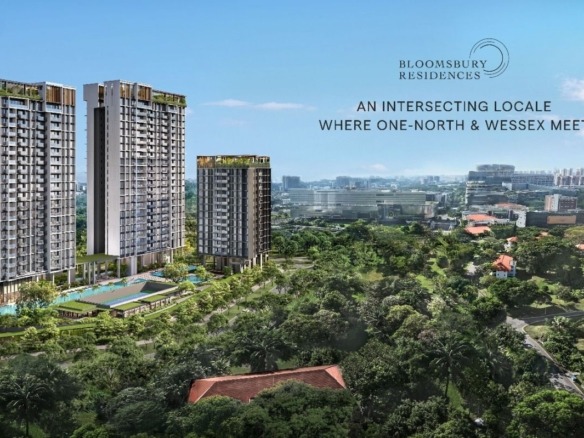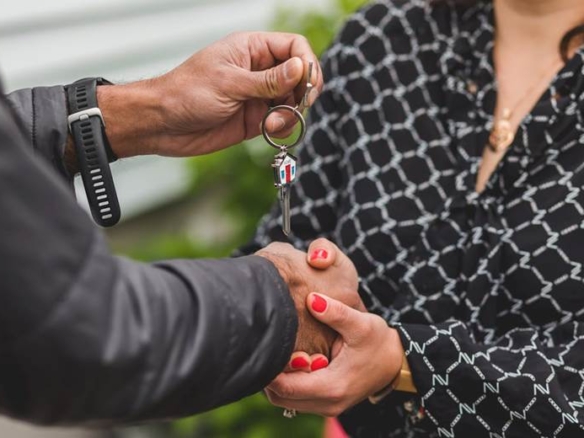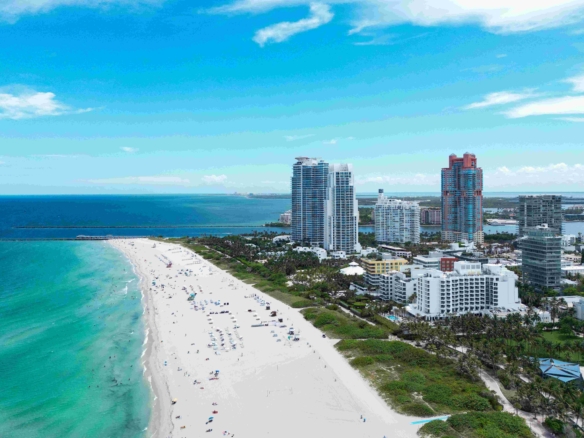If you’re thinking of settling down, you may be considering building your own home or renting one. But these days, the most popular option is purchasing a mobile home, which is known for being convenient and cost-effective. It’s a great option if you’re in a rush of owning your own place.
However, like any other residential property, there are various things to consider before you decide to buy a mobile home. Some of these include the following:
1. Know The Different Types Of Mobile Homes
The primary types of mobile homes are modular and manufactured. Their main difference is the foundation.
· Modular Homes – These are factory-built homes that are installed on a permanent foundation. Sometimes known as kit homes, a modular home is manufactured in sections inside factories with a controlled environment.
This factory environment gets rid of the possible problems often associated with certain climatic conditions, such as wind, mildew, snow, and rain at construction sites. This feature is one of the reasons many buyers are growing interested in modular homes.
So, if you’re planning to purchase one of these and sell it in the future, know that you can easily find buyers. You can even consider cash buyers that purchase mobile homes to sell your property fast. The best ones are those that purchase used or unused mobile homes regardless of their current condition. Oftentimes, such cash buyers post a tagline like ‘we buy mobile homes.’ This way, you’ll know exactly where to look.
· Manufactured Homes – These are known as the true mobile homes because they’re assembled and built entirely off-site and transported to another site.
While it’s not advisable to attempt relocating manufactured homes from a home site to another, they’re built in a way that makes relocation more feasible. Rather than having a permanent foundation, manufactured homes are anchored to the ground upon installation.
Therefore, if you invest in a manufactured home today and decide to sell it for some reason in the future, finding buyers won’t be a hassle because it’s in demand. It’s also possible to work with buyers. You can look for them by typing in keywords such as ‘sell my mobile home fast‘ in your browser’s search bar, then select your preferred cash buyer.
2. Learn The Sizes Of Mobile Homes
One of the common misconceptions that hold people back from buying a mobile home comes from the idea that such houses are small. Mobile homes have different sizes. Depending on your preferences, you can choose one from variations such as single wide, multi-wide, and double-wide. The main difference among these variations is the number of sections.
Since transportation safety regulations tend to be strict about the allowable sizes of vehicle loads, factories create mobile homes in sections to follow such guidelines. Once you buy a mobile home, the overall square footage of the living space you choose will correspond to the number of sections installed and delivered.
The size specifications of most mobile homes include the following:
· Single-Wide – 500 square feet to 1200 square feet
· Double-Wide – 1000 square feet to 2200 square feet
· Multi-Wide – Over 2000 square feet
In looking for a mobile home, keep in mind that its size must correspond to your needs and lifestyle in general.
3. Observe Due Diligence
State and local guidelines about mobile homes are different from site-built structures. Several municipalities impose restrictions, while some don’t. Beyond the local housing regulations, it’s also crucial to consider your connection to the municipal sewer, water, and some utilities. These are indispensable utilities for your soon-to-be abode.
Also, building inspections may vary from one area to another. Consider putting together and creating your own mobile home checklist, so you won’t run into some issues during the installation and delivery process. Typically, mobile homes provide these resources, ready-made to make the process more seamless.
4. Look For The Right Lender
Many traditional home lenders won’t finance mobile homes, so it’s critical to find the right lender for your home financing needs. If possible, ask your real estate agent for recommendations or suggestions.
In financing a mobile home, it would be easier to think of it as financing a vehicle. The older it is, the higher the down payment and the shorter the loan term. On the other hand, new mobile homes will require a lesser down payment and you get to enjoy a longer loan term.
Moreover, interest rates will be higher than usual since lenders consider mobile homes higher risks. They’re also affected by credit scores and the term of your loan.
5. Check The Quality
Another thing to consider before buying a mobile home is its quality. In checking the mobile home’s quality, consider the materials used. If a mobile home is made from the best quality materials, you can likewise be assured it will last longer. On the contrary, if a mobile home is made of low-quality materials, it might not be worth your investment.
6. Set Your Budget
More often than not, it’s recommended for homebuyers to secure a mortgage that doesn’t exceed 25% of their monthly salary. Since every mobile home is different, there are some things you must consider to determine whether the cost will fit right into your budget:
· Include leisure spending, property maintenance, and upkeep in your budget.
· Note that yearly property fees and taxes might increase.
· Calculate the debt-to-income ratio.
· Set a fixed monthly budget.
The cost of mobile homes is more affordable compared to site-built properties. However, it’s still essential to know your budget to enjoy financial flexibility in the long run.
7. Know The Costs
Aside from your budget, you should also consider the cost of different mobile homes in the market. This way, it’ll be easier for you to determine what you can and cannot afford. You also have to include other expenses, like the price of insurance.
The cost of a mobile home may vary depending on its size. To compare the costs, you can find different retailers that sell mobile homes at various prices. Then, go with the one that offers good and reasonable rates.

8. Do A Thorough Inspection
Since a mobile home is structured differently from a traditional one, it’s essential to get a thorough inspection before purchasing one. The wiring and water issues are your worst nightmares when it comes to mobile homes because they’re the hardest to fix.
So, before buying a mobile home, do a thorough inspection of the following:
· Water – Check under the windows, including the exterior and interior perimeters of your mobile home. Leaking roof, overflowing gutters, or siding holes may result in moisture and mold in the wall cavities.
· Electrical – Plumbing and electrical inspections must be done by professionals. However, there are some basic inspections you can do on your own to ensure that you’re not purchasing a total lemon. You can do this by getting a receptacle tester and plugging it into every wall outlet. Then, check the wiring’s functionality. Such testers can help determine the probability of improper outlet wiring.
Other than checking the outlets, you should do some research on the Electrical Code within your locality to ensure your electrical system is compliant with such.
If you notice defective electrical outlets, extension cords that run across your home, and wires hanging from the ceiling electrical outlets, look for another mobile home because such are red flags that should never be ignored.
· Foundation And Floors – As mentioned, foundations vary among mobile homes. However, all mobile homes should comply with their local codes. Some localities allow mobile homes to sit atop beam foundation, while some allow mobile homes on top of crushed rocks as long as they have concrete block support.
But generally, mobile homes don’t sit on the traditional foundation compared to stick-built homes. Thus, some parts of the foundation may not be protected from the elements. This is why you should check for soft spots on the floors since it’s a common problem among mobile homes.
· Septic – Usually, you would want to hire professionals to check the septic system in your mobile home. However, you only need to have your septic inspected if you’re buying a static mobile home. Septic inspections involve a sewer scope and a camera that goes through the plumbing. It provides you a view of not just the septic lines, but also the tank.
· Windows And Doors – Check the windows and doors for improper seals. If some areas are exposed to the outdoors, such may be at risk for moisture. If you close an exterior door, check if there are visible sunlight streaks. If you see light, odds are——you’ll need to replace the seals.
Several mobile homes tend to have single-pane windows, thus, you need to check the window’s functionality and ensure that everything can be locked and closed properly. If the main front and back doors aren’t closing or lining up properly, this is a clear indication that some parts of your mobile home are sinking. You have to address this matter immediately to keep your home leveled.
9. Choose A Design That Fits Your Lifestyle
One of the best things about investing in manufactured housing is that you can choose your preferred design and layout while being guided by customer service professionals.
Aside from the layout, buyers may also choose among design specifications—from master suites, open floor plans, luxurious bathrooms, kitchen islands, big windows to porches. It’s crucial to take your time and choose wisely.
Conclusion
Buying mobile homes can make a good investment. If you find the decision-making process challenging, take note of the above things to consider before you finalize anything. Before purchasing a mobile home, which is a big investment, do the math and keep your personal needs or preferences in mind to avoid making costly mistakes.



